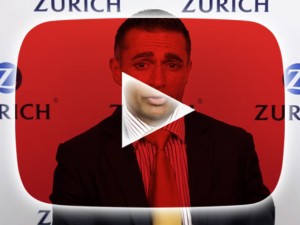Experienced NSW risk adviser, Mark Hoskin, has penned an open letter to Australia’s life company CEOs, highlighting what he sees as a widespread and unfair practice at claim time, contrary to the spirit and ‘good faith’ that should exist in the relationship between the insurer and the insured…
December 2014
Dear CEOs,
Our industry is currently under intense media and regulatory scrutiny, experiencing a high level of consumer distrust. I hear senior executives talk about being client or consumer-centred and being transparent in what we do. Yet in one critical area, I don’t believe we are ‘walking the talk’.
At claim time, case managers have the option of requesting doctors’ notes and Medicare and PBS histories for a claimant. This is a necessary and useful tool to protect the integrity of our industry where there are ‘red flags’ – signs of potential non-disclosure at application time. Unfortunately, this option is now the usual process for all claims where the policy has been inforce less than three years.
Why three years? This is the time limit on voiding policies for inadvertent non-disclosure. Beyond three years, an insurer must prove the disclosure was intentional.
The most vulnerable of an insurer’s clients are its claimants. Yet it seems insurers systematically subject them to the most scrutiny when there is a chance to void a claim, within the first three years of a policy’s life. I know of no insurer who requests the medical history for any of its clients within the first three years of a policy, except if the client applies for a claim. Then it is done, almost without exception.
I understand this has been the status quo in the industry for many years, and it feeds the negative perception among consumers that insurers will do anything to deny a claim. This is not acting in good faith!
I became keenly aware of this issue when a client of mine broke his arm in an innocuous weekend accident, entitling him to a six-week payment under the Specified Injury Benefit of his income protection policy. We provided X-ray reports, etc, to support the claim. However, as the policy had only been inforce for 18 months, the insurer requested authorities to be signed so doctor’s notes and Medicare history could be obtained. The reason given was to ‘validate the claim’, or as the customer would see it, as a search for an unrelated non-disclosure to potentially void the claim and the policy.
I have been told by various claims managers that the insurers deny a very small percentage of all claims due to non-disclosure. If this is the case, please stop this practice, and only seek medical notes where significant ‘red flags’ are raised. In this way our industry can be seen to be acting in good faith with its most important members, its customers.
Changing this seemingly wide-spread policy will enable advisers and insurers alike to be proud of what our industry accomplishes.

Mark Hoskin is Executive Director – General Manager NSW, Australian Financial Risk Management Pty Ltd
















